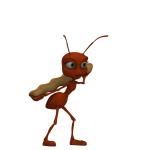King Solomon may have gained some of his famed wisdom from an unlikely source – ants.
Pesticides
The evidence is quite clear at this point. Properly used, pesticides do not pose a serious risk to human health or the environment.
Join our directors of bio-sciences and medicine Cameron English and Dr. Chuck Dinerstein as they break down these stories on episode 21 of the Science Dispatch podcast.
Woodstock 99 is remembered as one of the most disastrous events in music history.
Join ACSH directors of bio-sciences and medicine Cameron English and Dr. Chuck Dinerstein as they break down these stories on episode 14 of the Science Dispatch podcast:
Organic activist group Slow Food recently released its list of “10 Key Facts on Pesticides," a post designed to “raise awareness about the risks and dan
The trace amounts of pesticides in food cannot harm you.
We frequently receive requests to comment on specific news stories. These are usually examples of journalists or pundits commenting on subjects they know nothing about and badly misleading their audiences as a result.
We at ACSH never write articles about TikTok fashion celebrities or the benefits of sticking metal rods
Bad baby advice is ubiquitous, it seems. You can find it in every corner of the internet, sometimes proffered by well-meaning but misinformed parenting groups on social media, but more often by websites with ulterior motives.












